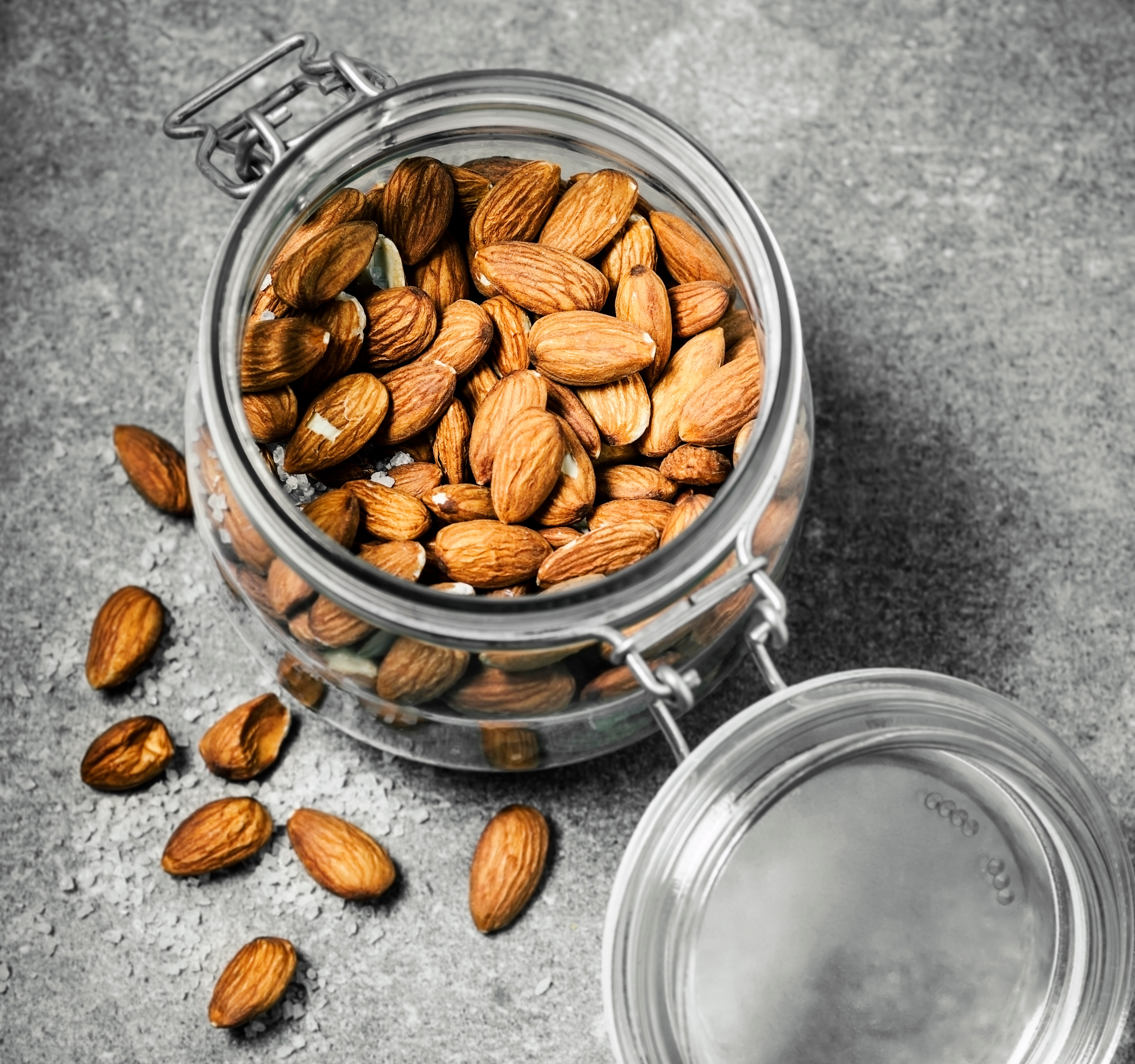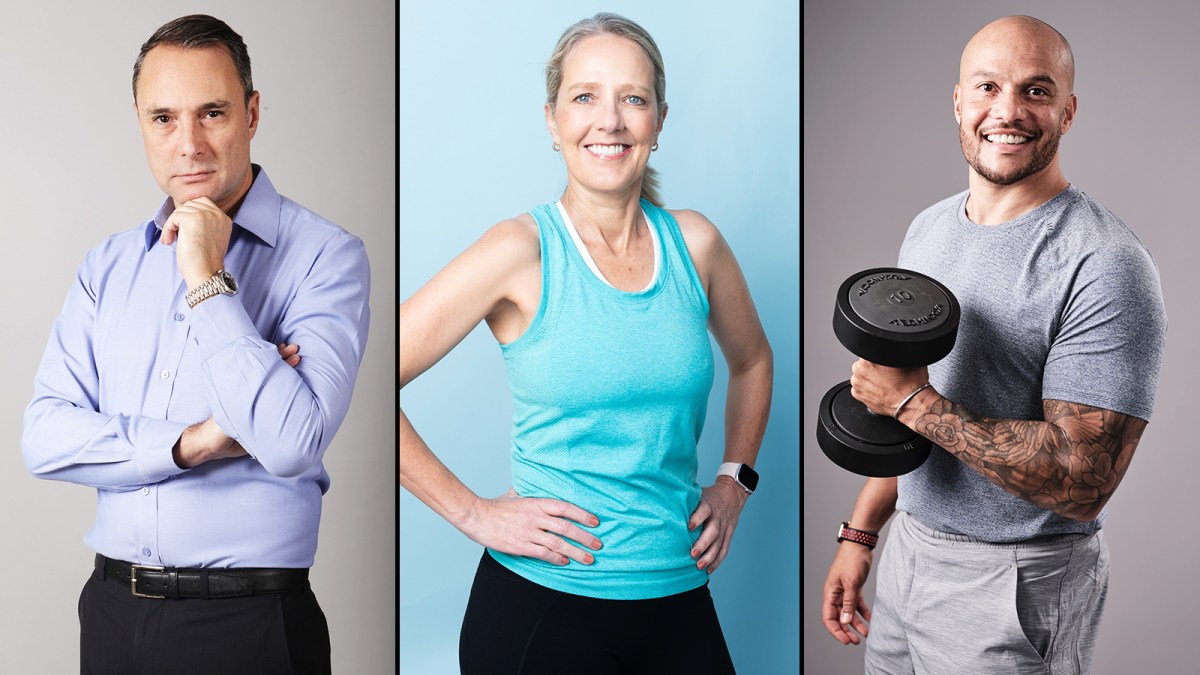As any dieter will tell you, losing weight is only part of the battle — the biggest challenge is keeping off the pounds. This week new advice issued from the National Institute for Health and Care Excellence (Nice) recommends that people coming off weight-loss drugs such as Wegovy and Mounjaro should have NHS check-ups for at least a year to prevent them from piling back on the weight they have just lost. One study by British researchers in the journal Diabetes, Obesity and Metabolism found that people typically regained two thirds of their original weight when they stopped using fat jabs.
It’s a similar story for those who follow conventional weight-loss diets. A review of 29 long-term weight-loss studies by researchers at Johns Hopkins Bloomberg School of Public Health and George Washington University found that more than half of the weight lost by dieters was regained within two years, and by five years people had put back on more than 80 per cent of their lost weight.
However, experts say weight regain is not inevitable. “It takes effort and planning but you can keep weight off long term,” says Dr Linia Patel, a researcher in the department of clinical sciences and community health at the Università degli Studi di Milano in Italy and a spokeswoman for the British Dietetic Association (BDA). Here’s how.
 Eat protein with your carbs
Eat protein with your carbs
“Protein and fibre-rich complex carbohydrates eaten together help slow down digestion so that you stay fuller for longer,” says the nutrition therapist Ian Marber. “Along with healthy dietary fats, they encourage the natural release of glucagon-like peptide-1, or GLP-1, a hormone that helps manage glucose levels in the blood and manages appetite.” It’s this very hormone that is mimicked by GLP-1 agonists as found in weight-loss medications.
Aim to do at least 10,000 daily steps — and walk briskly
“A lot of people find their average daily step count goes down when they are dieting or losing weight,” says the personal trainer Harry Jameson. “This is generally because their energy intake is lower so they feel more fatigued.” Once the pounds are lost it is time to ramp up the daily steps to at least 10,000, aiming for 15-20,000 if you can. “This, in conjunction with diet and other exercise, will help to keep weight regain at bay,” Jameson says. “And the faster you walk, the more calories are burnt.”
Consider eating more often
It sounds counterintuitive but this tactic works for men, Marber says. “Losing weight can help improve insulin sensitivity, which should enhance the process of making energy from the food we eat,” he explains. “You can boost this further by eating small portions of healthy food at regular intervals, which may mean a small snack between main meals.” Don’t overdo it — an apple and a few almonds or hummus on an oatcake are enough to stabilise blood glucose levels, which in turn helps to curb the appetite.
• How to make your food more nutritious with these 23 tiny tweaks
Lift weights 2-4 times a week
No getting away from this one, Jameson says. “Weight-loss medications accelerate the loss of muscle mass more than regular dieting but in both cases you will need to offset the decline by adding resistance training to your routine,” he says. “Aim to lift weights that are heavy enough for you to lift 8-10 times at least twice and up to four times a week.” Over time the added muscle strength will boost your metabolism. “Your body becomes more efficient at fat burning,” Jameson says.

Weights are key to lasting fat loss, aim for 2-4 sessions a week
GETTY IMAGES
Consider taking creatine
Alison Cork, author of Fit and Fabulous Over 50, takes supplements to help with weight maintenance. “I find that creatine can boost your performance during training and help to preserve muscle health, both of which in turn aid calorie burning,” she says. “And turmeric in the form of curcumin is another favourite as it has anti-inflammatory properties that can assist your body in maintaining a stable weight.”
• How to burn more fat while exercising
Keep increasing the intensity of your exercise
Exercise in conjunction with healthy eating is essential for weight maintenance. Levels of leptin, an appetite-suppressing hormone, were found to increase in a group of overweight men and women who exercised for 40 minutes a day, while those who did less or were not active at all experienced no such change, according to a study from the University of Kentucky. Meanwhile, researchers at the University of Colorado showed that the same amount of physical activity did more to maintain substantial weight loss than just dieting. You will need to make your exercise progressively harder — adding to the duration or the intensity in increments — to see the best results.
But don’t rely on exercise alone to maintain weight loss
Cork says that we all need to remember the truism: you cannot out-train a bad diet. “Your weight is always going to be 80 per cent down to what you are eating and 20 per cent down to exercise and genetics,” she says. “Sweating away in the gym is only going to get you so far and will only work when combined with a healthy diet so keep both going in tandem.”
If you do use weight-loss drugs, come off them slowly…
According to Dr Henrik Gudbergsen, the lead researcher from Embla, a digital weight-loss clinic based in Copenhagen and London, research shows that tapering withdrawal from weight-loss drugs was the best guard against regaining lost pounds. “A patient’s appetite returns when they stop taking the drug, and if they stop taking it suddenly they may find it hard to resist their cravings,” Gudbergsen says. “However, if they stop slowly, and have expanded their awareness and understanding of healthy lifestyle behaviours and eating habits, their hunger and satiety will be more manageable, making it easier for them to maintain a healthy weight.”
Track what you’re really eating (but only for a few weeks)
“It’s so easy to underestimate calorie intake,” Marber says. “I recommend downloading one of the free calorie tracker apps such as MyFitnessPal to your phone and inputting every morsel of food and every drink you consume daily for a better understanding of your intake.” Marber suggests doing this for a couple of weeks at most. “Tracking calories for too long can be joyless, so once you get a feel for daily intake, delete the app,” he says. “As a very rough rule of thumb, women need around 2,000 calories daily to maintain their current weight and for men this is 2,500 calories.”

Make sure at least half your plate is veg
GETTY IMAGES
Never go food shopping hungry
“Healthy eating is far less likely to happen if you do things spur of the moment,” Patel says. “Write a shopping list, a weekly meal plan and shop accordingly. Do some batch preparation at weekends so that you can freeze meals or sauces to use in the future.”
Fill up on fibre
A diet rich in fibre-rich wholegrains, seeds, nuts, fruit and vegetables as well as lean and plant-based protein such as pulses, tofu and yoghurt can have a powerful effect on weight maintenance. “It’s not just the amount of food consumed but the quality of it that can affect your ability to keep weight off,” Patel says. “Just cutting calories might lead to weight loss, but not including fibre can backfire later on when you try to maintain your new weight.”
A 2019 study in the Journal of Nutrition showed that eating plenty of fibre-rich foods such as oats, wholemeal bread, beans, peas and lentils meant that dieters were more likely to stick with a weight loss or maintenance plan. “These foods take a lot of chewing, which stimulates satiety signals and tells us we are fuller sooner,” Patel says. “They also take longer to pass through our digestive system so that we stay full for longer.”
Make sure at least half your plate is veg
Self-regulation tactics for weight loss and maintenance were the focus of a study by the University of Oxford published in the British Journal of Health Psychology. The Oxford experts found that one of the most effective tactics was filling half of your dinner plate with boiled or steamed veg (potatoes didn’t count) and salad with low-calorie dressings made from yoghurt, lemon juice or balsamic vinegar, all of which are nutrient-dense and low in calories.
Eat foods you really enjoy
Eating foods that satisfy your taste buds will enhance satiety. “Your ideal satiety meal will contain fibre and protein but also be enjoyable for your taste buds with some fat, some such crunch and a flavour you enjoy,” Patel says. “It is this combination that can help you feel full and satisfied, potentially reducing cravings.” Patel says her favourite healthy meal is a chicken breast on a bed of lentils, with lots of veggies on the side and some feta cheese crumbled on top. “That is guaranteed to leave me satiated,” she says.
Make sure you chew your food well
In the University of Oxford study, another successful weight-maintenance strategy was to cut up food into bite-size pieces before eating it. This, the scientists said, increases the number of mouthfuls you need to take, triggering the gut hormones into action so that they send messages to the brain that you are full. Taking 20 chews per bite and putting your cutlery down between forkfuls also helps by reducing your eating speed, making you more likely to feel full before you overeat. “Eating while seated and not while multitasking also helps with tuning into your internal signals of how full you are,” Patel says.
Focus on time, not reps, in strength workouts
Many people fall out of fitness routines because they run out of time or focus. “By switching to time-based training you’ll solve both problems,” says the personal trainer Scott Harrison, founder of the Six Pack Revolution. “This method focuses on completing exercises for a set duration, so 40 seconds of effort, 20 seconds of recovery, instead of a fixed number of reps that might take you ages to complete.”
Don’t forget functional exercise
Exercise isn’t all about feeling the burn. “When you’re trying to maintain weight loss, functional strength matters as it supports daily movement, boosts energy and keeps joints healthy,” Harrison says. “So make sure you include some functional body weight movements — such as jump squats, mountain climbers or push-up holds — which will boost cardiovascular health and endurance alongside strength.”
• How to strengthen your bones as well as muscles
Don’t allow ‘all-or-nothing’ thinking to creep in
Too often we berate ourselves for sabotaging weight loss if we fall off the wagon. “Remind yourself that one indulgent meal doesn’t ‘ruin’ everything,” says the registered nutritionist Eli Brecher. “The key to long-term weight management is consistency, not perfection, so reframe any slip-ups as a normal part of life, then get back to your usual habits at the next meal.”
Aim to eat as many whole foods as you can
“Minimally processed whole foods support weight management in ways that go beyond calorie content,” says Rhiannon Lambert, registered nutritionist and author of The Unprocessed Plate. “Their natural structure, such as the intact cell walls in whole nuts, grains, fruits and vegetables, slows digestion and requires more chewing, which helps increase feelings of fullness and reduce overall calorie intake, but their physical complexity also means that not all calories are fully absorbed from whole foods.”
She gives the example of whole almonds, which have been shown to provide fewer absorbed calories than more processed forms such as almond butter. “This isn’t to say almond butter isn’t a nutritious source of healthy fats and a healthy addition to the diet,” Lambert says, “but it illustrates how eating foods in their whole form can support weight control.”

Whole almonds are better for you than processed alternatives like almond butter
GETTY IMAGES
Moderate your alcohol intake
A glass of red wine contains upwards of 125 calories, a gin and tonic about 170 calories and a pint of beer about 250 calories. “These soon add up and can quickly undo any good work you have put in to lose weight,” Jameson says. “Don’t be too harsh on yourself but restrict yourself to one to two drinks on a night out and opt for lower calorie options such as gin and zero-calorie tonic.” Try to aim for as many alcohol-free days as you can each week.
• Weight loss: The real reasons the pounds creep back on
Are you hungry or dehydrated?
Make sure you consume about 1.5-2 litres a day, the amount recommended by the NHS, of water or other fluids. Black coffee or tea are also calorie-free options. Dehydration is often mistaken for hunger, meaning food — and extra calories — is consumed. “Drinking enough fluid, preferably water, will ultimately make you feel less hungry,” Cork says.
Do nothing, once a week
Ensure you take at least one rest day a week away from your exercise routine and get quality sleep each night to allow hormonal balance and muscle repair, Harrison says. “When coming off weight-loss medication or finishing a diet, people may feel pressure to do more exercise without realising that recovery days are also when real change happens.
“Your muscles rebuild and grow during rest periods, not during the workout itself. Adding some gentle stretching, yoga or walking supports recovery without creating fatigue.” Plus rest makes a gym programme sustainable “and sustainability is what keeps the weight off permanently”, Harrison says.

